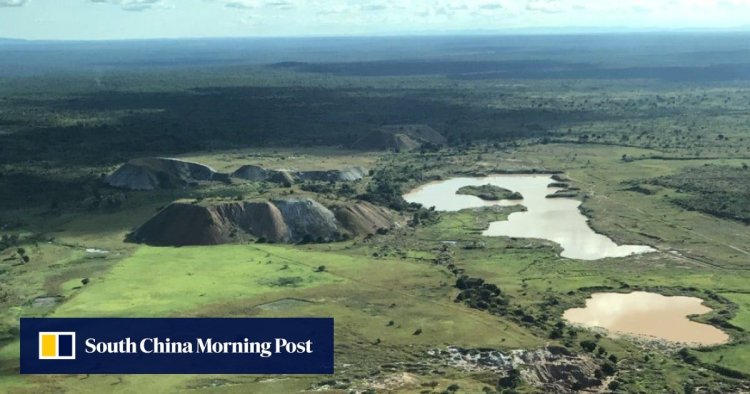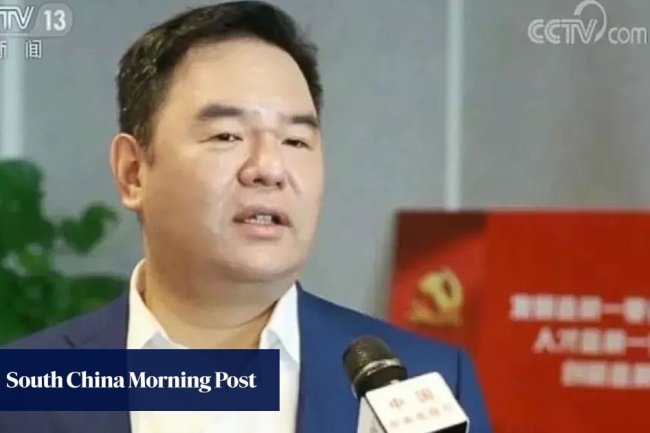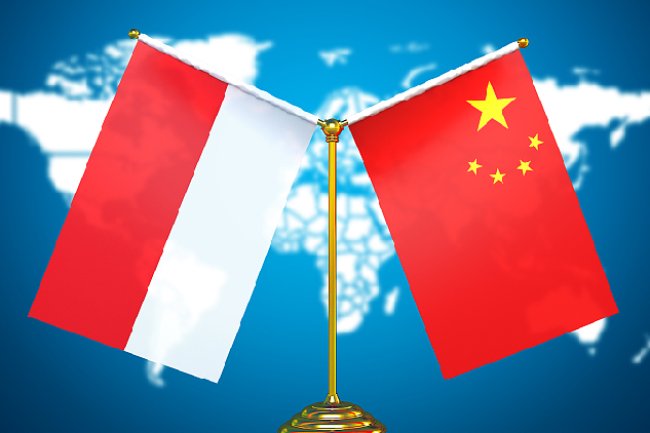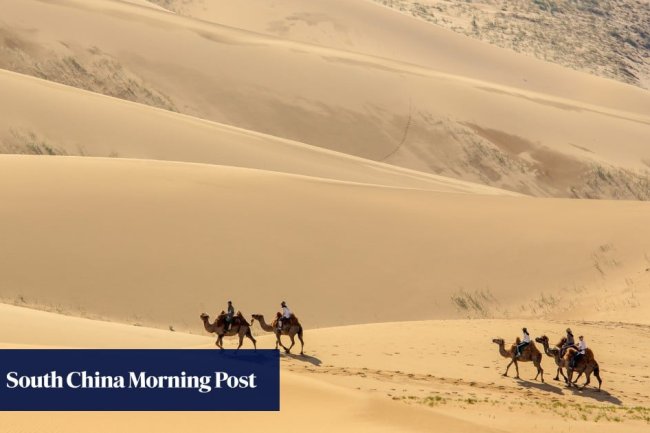Africa’s minerals giants push for bigger battery bucks as China and the West vie for clean energy resources
2023.06.18 18:00Some of Africa’s top mineral-producing nations are banning the export of raw battery minerals and instead want the metals processed locally as rivalry between China and Western nations over the critical resources intensifies.Namibia, the Democratic Republic of the Congo (DRC) and Zimbabwe have significant deposits of lithium – an essential component used to make rechargeable batteries for electronic devices, electric vehicles and other clean technologies – and want their minerals processed locally so they can get better value from the resources.As the world transitions to green energy, they are capitalising on rising demand for the minerals, especially lithium and cobalt which many countries are banking on to achieve clean energy ambitions.Namibia last week banned the export of unprocessed lithium and other critical minerals because it wants its economy to benefit more from them. The country’s cabinet last week approved the ban on the export of unprocessed lithium ore,


Some of Africa’s top mineral-producing nations are banning the export of raw battery minerals and instead want the metals processed locally as rivalry between China and Western nations over the critical resources intensifies.
Namibia, the Democratic Republic of the Congo (DRC) and Zimbabwe have significant deposits of lithium – an essential component used to make rechargeable batteries for electronic devices, electric vehicles and other clean technologies – and want their minerals processed locally so they can get better value from the resources.
As the world transitions to green energy, they are capitalising on rising demand for the minerals, especially lithium and cobalt which many countries are banking on to achieve clean energy ambitions.
Namibia last week banned the export of unprocessed lithium and other critical minerals because it wants its economy to benefit more from them. The country’s cabinet last week approved the ban on the export of unprocessed lithium ore, cobalt, manganese, graphite and rare earth minerals – all critical in the global green energy transition.
The southwest African country has significant deposits of lithium as well as rare earth minerals such as dysprosium and terbium used to make magnets in the batteries of electric cars and wind turbines. It is also one of the world’s largest uranium and diamond producers.
However, Namibia’s deputy minister of information and communications technology, Emma Theofelus, said smaller quantities of the minerals might be allowed for export at the discretion of the minister of mines and energy, subject to cabinet endorsement.
Toyota’s top scientist says the world lacks resources to go all-EV
China is the dominant player in global lithium processing, accounting for more than half the world’s total. Meanwhile, the United States and Canada refine less than 5 per cent each, according to Benchmark’s lithium forecast. But the US and some other Western nations are not letting China go unchallenged.
Last year, the European Union signed a deal with Namibia to secure rare earth minerals under the bloc’s bid to cut its reliance on China.
The US is also angling for the battery metals and last year signed a memorandum of understanding with Zambia and the DRC to bring funding and expertise into their mining industries.
TechMet, a company in which the US International Development Finance Corporation (DFC) is the second largest shareholder, partnered with Life Zone Metals in Tanzania to build a new facility to process nickel and other critical minerals mined in Tanzania, with the goal of delivering battery-grade nickel to the global market as soon as 2026, according to the White House.
Most mineral-rich African countries have little or no capacity for lithium processing or refining and their ore or mineral concentrate is usually exported to countries such as China for value adding to make lithium-ion batteries.
In the DRC, President Félix Tshisekedi said China had agreed to help the Central African nation develop supply chains for battery metals. Tshisekedi told China Media Group last week that the DRC’s focus had been on mere mineral extraction, which was not enough to develop the economy.
“Today, we realise that without added value, these minerals are virtually worthless especially when compared to the level of development we aspire to achieve in our country,” Tshisekedi said.
The DRC is by far the world’s largest exporter of cobalt, accounting for about 70 per cent of global production. It supplies China with 60 per cent of its cobalt. It is also rich in dozens of other metals, such as copper and lithium.
Tshisekedi said Chinese companies planned to build a battery-making plant, which would export to the US and Europe, and create a “mutually beneficial industrial chain”.
“Today, it is high time we process the minerals extracted here within the DRC. This will add value and, most importantly, create wealth and jobs in the DRC,” Tshisekedi said.
“We are on the cusp of a promising venture in the manufacturing of power batteries in Manono. There, we bring together the Congolese government, Chinese companies and American and European companies as end users.”
Lithium supply volatility, price war pose risk to EV makers’ financials
Manono in the southeast of DRC was estimated in 2019 to have the world’s largest untapped lithium deposit.
Chris Berry, president of commodities advisory firm House Mountain Partners in New York, said: “Officials in those countries know how to read price charts and realise that they are losing a great deal of value in allowing the export of raw ore.”
“It is much more profitable to export refined concentrate or high purity materials. Having more of the supply chain in your country also creates jobs and tax revenue,” Berry said.
He said it would take time for these countries to start to integrate vertically but it was not impossible. They needed capital, legal certainty and technical talent, Berry said.
In December, Zimbabwe barred exports of the lithium in its raw form as part of efforts to have it processed locally, allowing only concentrates to be shipped out. Zimbabwe is estimated to have the largest unexploited reserve of lithium in Africa, attracting many Chinese companies.
In recent years, three Chinese companies – Zhejiang Huayou Cobalt, Sinomine Resource Group and Chengxin Lithium Group – have acquired lithium projects in Zimbabwe worth a combined US$679 million, amid the worldwide race to go green.
Huayou Cobalt and Chengxin Lithium are already developing processing plants. Huayou Cobalt acquired the Arcadia hard-rock lithium mine outside Harare for US$422 million from Australian company Prospect Resources last year.
Saliem Fakir, executive director of the African Climate Foundation, said Namibia and other resource-rich nations had realised they could not operate in the way as they had done in the past.
“There are concerns that raw ore gets exported or partially processed – and given the high price critical minerals are fetching – little value remains in the country where the mineral resides,” Fakir said. He said Indonesia had a ban on exports of raw nickel. It too wanted beneficiation, or to improve the value of the ore, within the country.
“Countries with valuable critical minerals ought to exploit the monopoly they have over some of these minerals, like the DRC, and bargain for better deals,” Fakir said.
Recycling key to China’s self-sufficiency ambitions for the ‘new oil’
He said there was immense competition for these resources from rival major economies.
“These countries have become wise to the fact that they have a better position to bargain, and why not? Why not change the status quo before it is too late,” Fakir said.
Fakir said it made sense to produce batteries in countries where the key minerals were but “we need to ensure that battery demand grows beyond the DRC and other countries – that demand is an important stepping stone to ensuring sustainable manufacturing of batteries and greater value-add in Africa”.
What's Your Reaction?













